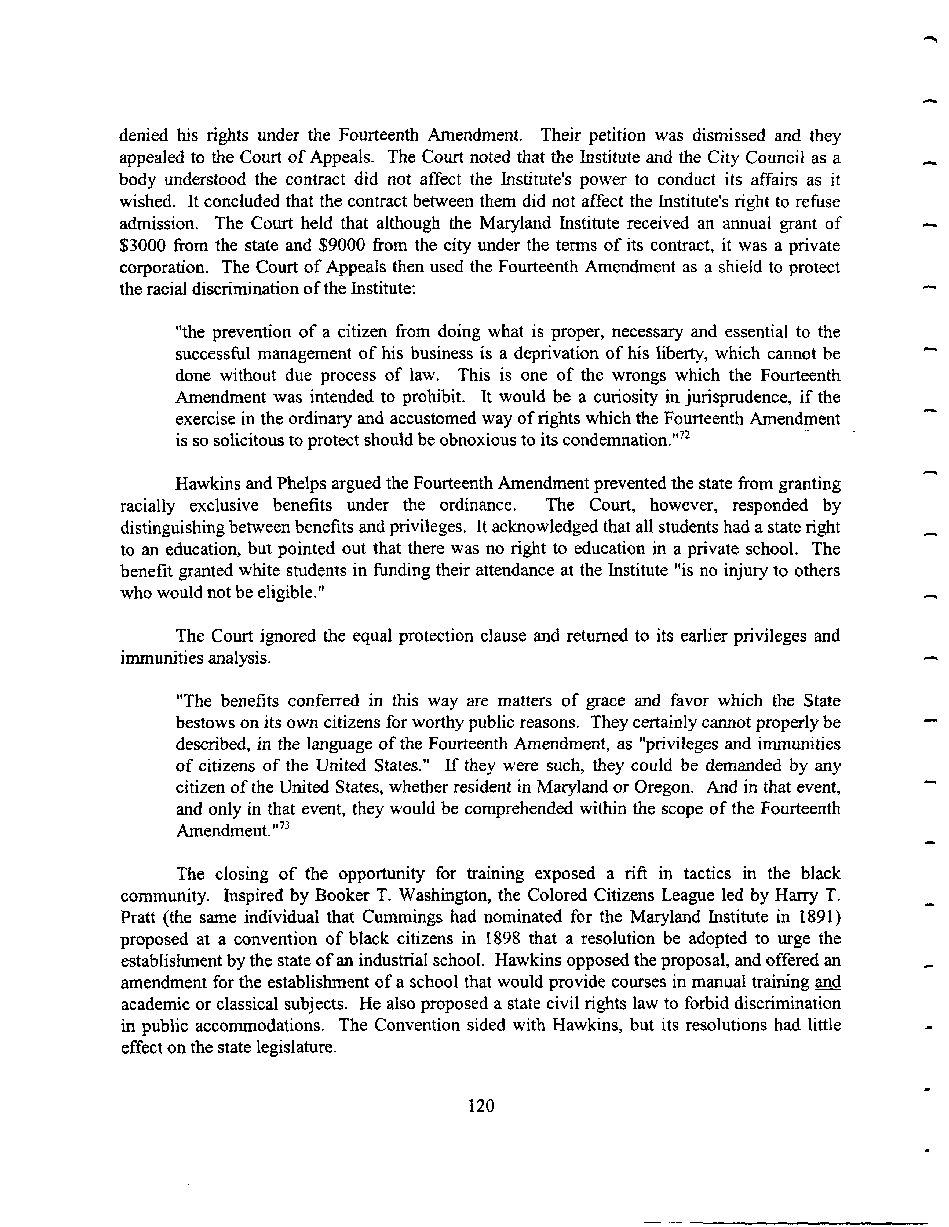|
denied his rights under the Fourteenth Amendment. Their petition was dismissed and they
appealed to the Court of Appeals. The Court noted that the Institute and the City Council as a
body understood the contract did not affect the Institute's power to conduct its affairs as it
wished. It concluded that the contract between them did not affect the Institute's right to refuse
admission. The Court held that although the Maryland Institute received an annual grant of
$3000 from the state and $9000 from the city under the terms of its contract, it was a private
corporation. The Court of Appeals then used the Fourteenth Amendment as a shield to protect
the racial discrimination of the Institute:
"the prevention of a citizen from doing what is proper, necessary and essential to the
successful management of his business is a deprivation of his liberty, which cannot be
done without due process of law. This is one of the wrongs which the Fourteenth
Amendment was intended to prohibit. It would be a curiosity in jurisprudence, if the
exercise in the ordinary and accustomed way of rights which the Fourteenth Amendment
is so solicitous to protect should be obnoxious to its condemnation."72
Hawkins and Phelps argued the Fourteenth Amendment prevented the state from granting
racially exclusive benefits under the ordinance. The Court, however, responded by
distinguishing between benefits and privileges. It acknowledged that all students had a state right
to an education, but pointed out that there was no right to education in a private school. The
benefit granted white students in funding their attendance at the Institute "is no injury to others
who would not be eligible."
The Court ignored the equal protection clause and returned to its earlier privileges and
immunities analysis.
"The benefits conferred in this way are matters of grace and favor which the State
bestows on its own citizens for worthy public reasons. They certainly cannot properly be
described, in the language of the Fourteenth Amendment, as "privileges and immunities
of citizens of the United States." If they were such, they could be demanded by any
citizen of the United States, whether resident in Maryland or Oregon. And in that event,
and only in that event, they would be comprehended within the scope of the Fourteenth
Amendment."73
The closing of the opportunity for training exposed a rift in tactics in the black
community. Inspired by Booker T. Washington, the Colored Citizens League led by Harry T.
Pratt (the same individual that Cummings had nominated for the Maryland Institute in 1891)
proposed at a convention of black citizens in 1898 that a resolution be adopted to urge the
establishment by the state of an industrial school. Hawkins opposed the proposal, and offered an
amendment for the establishment of a school that would provide courses in manual training and
academic or classical subjects. He also proposed a state civil rights law to forbid discrimination
in public accommodations. The Convention sided with Hawkins, but its resolutions had little
effect on the state legislature.
120
�
|

